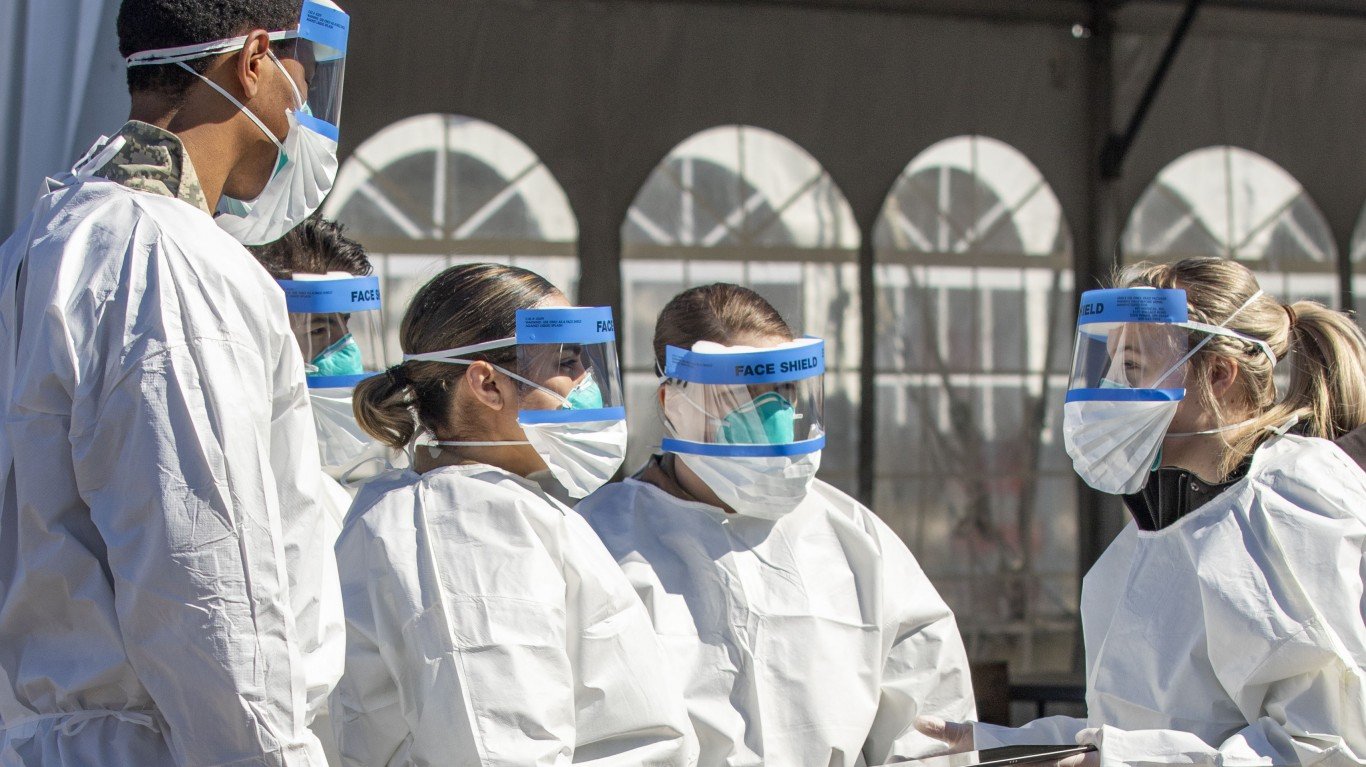

The U.S. Labor Department reported Thursday morning that 281,000 Americans had filed new claims for unemployment benefits, about 28% more than the 220,000 filings economists had projected. It’s a safe bet that the number will only rise as the coronavirus infection spreads across the United States.
How bad will the job losses get? According to an estimate made earlier this week by the Economic Policy Institute, 3 million U.S. jobs could be lost by summertime. On Wednesday, the International Labour Organization (ILO) estimated that global unemployment could increase by 25 million. That total tops the estimated 22 million job losses following the financial crisis of 2008.
As of early Thursday, more than 225,000 coronavirus cases have been reported worldwide. Nearly 9,300 people have died and more than 86,000 have recovered.
The economic shocks accompanying the coronavirus outbreak will affect workers in three ways, according to the ILO:
- The number of jobs
- The quality of those jobs
- The effects on specific groups who are more vulnerable to adverse labor market outcomes
The ILO estimates that through March 10 an estimated 30,000 work-months had been lost to the coronavirus outbreak and that 2020 income lost as quarantines and social distancing continue could amount to as much as $3.44 trillion.
As remote as the possibility now seems, the pandemic will end. Under a best-case scenario, the ILO estimates that an additional 8.8 million people will join the ranks of the working poor by that time. In a worst-case scenario, that estimate rises to 35 million.
In the worst-case scenario, middle-income workers are expected to comprise 29.3 million of the increase in the working poor, with low-middle income workers accounting for 14.8 million and high-middle income workers accounting for 14.5 million.
The most vulnerable are younger workers, women, workers who are self-employed or casual/gig workers, and migrant workers. Women are especially vulnerable, according to the ILO because they make up a greater percentage of service sector employment than do men, they have less social protection (unemployment benefits, and so on) and “will bear a disproportionate burden in the care economy, in the case of closure of schools or care systems.”
The ILO recommends that government policy responses to the coronavirus outbreak focus on health protection measures and economic support for both the supply and demand sides of the economy. Among many examples of policies the organization supports are telecommuting, expanded access to paid sick leave, childcare support where schools are closed, lower interest rates and specific support to important industry sectors.
Take This Retirement Quiz To Get Matched With A Financial Advisor (Sponsored)
Take the quiz below to get matched with a financial advisor today.
Each advisor has been vetted by SmartAsset and is held to a fiduciary standard to act in your best interests.
Here’s how it works:
1. Answer SmartAsset advisor match quiz
2. Review your pre-screened matches at your leisure. Check out the advisors’ profiles.
3. Speak with advisors at no cost to you. Have an introductory call on the phone or introduction in person and choose whom to work with in the future
Take the retirement quiz right here.
Thank you for reading! Have some feedback for us?
Contact the 24/7 Wall St. editorial team.
 24/7 Wall St.
24/7 Wall St.


